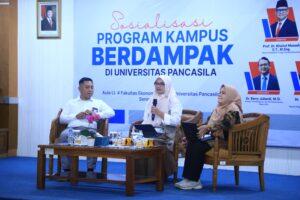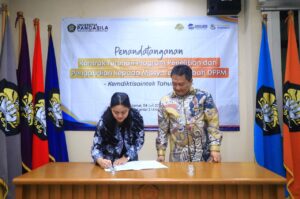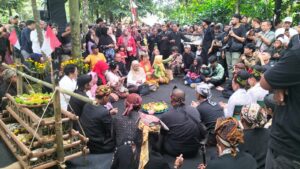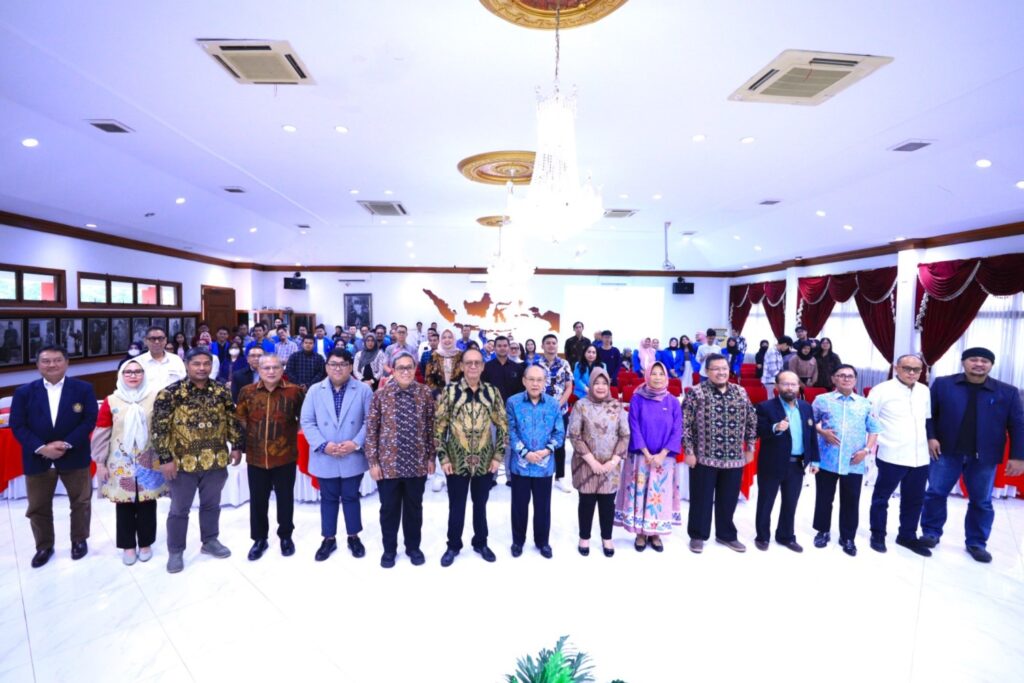
Jakarta, November 25, 2024 — The Master of Law Study Program, Faculty of Law, Pancasila University (FHUP) held a National Discussion and National Debate Competition with the theme "The Movement of Constitutional Interpretation after the Amendment to the 1945 Constitution of the Republic of Indonesia (Realization of the Living Constitution)." This activity was held at the Nusantara Hall, Faculty of Law, Pancasila University, as a form of response to the dynamics of constitutional developments in Indonesia and an effort to strengthen constitutional awareness among the younger generation.
The background of this activity is based on the life of the nation and state which shows that the constitution plays a very important role. The constitution is not just a legal document, but rather a basic principle that reflects the level of civilization of a nation. Over time, the meaning and content of the constitution continue to develop, following changes in human civilization and the needs of the state. Since the 1998 reform era, the 1945 Constitution has undergone four amendments, which have brought significant changes in state governance.
In this context, the concept of The Living Constitution, becomes relevant because it always develops and adapts to the changing times without the need for formal amendments. Its implementation in Indonesia can be seen from the implementation of the MPR Annual Session, Joint Session of the DPR and DPD, thus updating the meaning of the constitution according to the needs of national life.
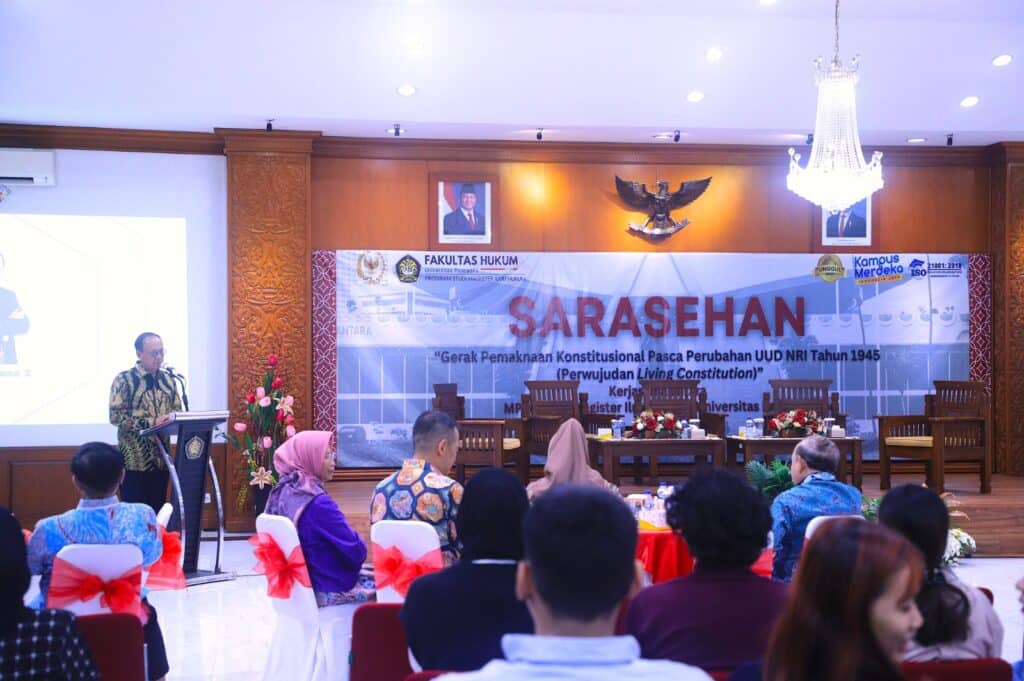
This national seminar aims to emphasize the importance of the MPR which legally has the role of the MPR in interpreting the Constitution. Granting authority to the MPR does not mean eliminating the role of the Constitutional Court in interpreting the constitution. The Constitutional Court remains a state institution that has the authority to interpret the constitution.
The speakers in this National Seminar activity were Dr. H. Wahiduddin Adams, SH, MA.,, Prof. Dr. Ibnu Sina Chandranegara, SH, MH., Prof. Dr. Fitra Arsil, SH, MH., Drs. Yana Indrawan, M.Sc., and Dr. Ilham Hermawan, SH, MH.
The main points of the discussion were concluded as follows:
1. The meaning of the constitution (constitutional interpretation) is an activity of implementing the meaning of the constitution in solving concrete constitutional problems. In this activity, it is not uncommon for efforts to interpret the constitution to provide implications for changes in the meaning of the constitution.
2. In theory, constitutional change through constitutional interpretation is very possible. In theory, constitutional change through interpretation occurs in legislative institutions, so it is called judicial interpretation.
3. The choice of change through constitutional interpretation is considered better than change through formal amendment. Because change through amendment is much more difficult than through interpretation. Constitutionally, formal amendment requires a more complex institutional mechanism.
4. Changes in the way of interpreting the constitution are believed to be able to create a living constitution, a constitution whose meaning continues to follow developments over time.
5. However, if the interpretation of the constitution only involves the thoughts of the judges who at that time became Constitutional Judges, then it is feared that the constitution will become narrow. Interpretation must involve the promotional meaning of the institutions that have involvement in the interpretation of the constitution. One of them, the MPR as an institution that has the authority to change and determine the constitution should also be involved in the interpretation of the constitution. This is so that the constitutional meaning produced has a meaning that can be accounted for institutionally.
6. Institutionally, the meaning of original intent or original mining is in the MPR institution. In order to obtain a meaning that can be accounted for, the MPR must be involved in testing laws. The involvement of the MPR. This does not mean reducing the Authoritative interpretation of the constitutional interpretation in the judiciary.
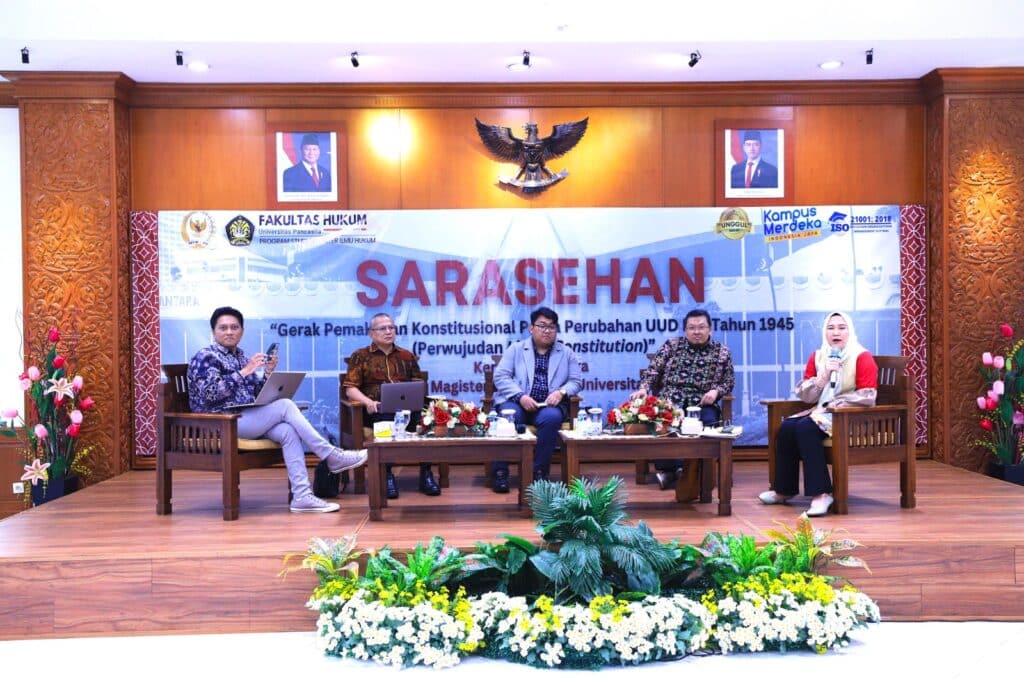
In addition, a National Debate competition was held which was attended by students and university students as participants who aimed to become a generation of social controllers and intellectual sources for the nation. Active participation is the key to raising awareness of the importance of implementing the constitution properly and correctly. Thus, Indonesia can move towards a brighter and more democratic future, supported by a strong constitutional awareness.
This National Discussion and National Debate Competition aims to:
1. Increase students' awareness of the importance of the constitution in national and state life.
2. Measuring the criticality and concern of students towards the meaning of the constitution after the amendment as a manifestation of the "Living Constitution."
3. Encourage critical attitudes and participation of students in the process of interpreting the constitution for a better future for Indonesia.

